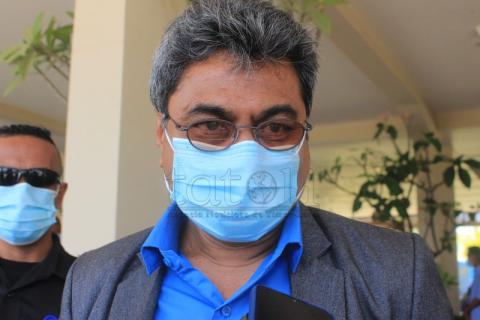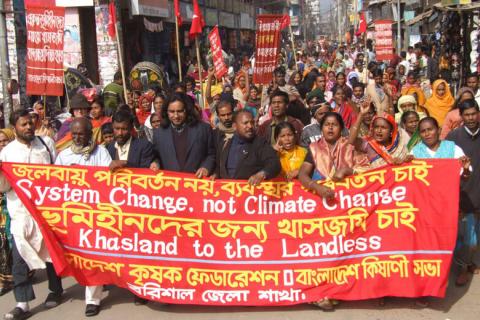
Topics and Regions
Landpages.co.ke is a medium of passing this message.
Details
Public Email
Location
Contributions
Displaying 691 - 700 of 740MoPT sensitizes urban planning law to community leaders and relevant entities
DILI, 26 october 2021 (TATOLI) – The Ministry of Planning and Territory (MoPT) sensitized urban planning law (Law No.6/2017) to community leaders and relevant entities of the Dili municipality.
Urban planning is the art of giving shape, design, and structure to cities and towns. It involves various processes like arrangement and designing of buildings, transport systems, public spaces as well as good amenities.
The Destroyed Land, Life, and Identity of The Tamil People in Sri Lanka
Endless War: The Destroyed Land, Life, and Identity of the Tamil People in Sri Lanka, brings forth shocking new evidence on the extent of the continued persecution of the minority Tamil population in the North and East of the country.
Tenure-Responsive Land Use Planning
Land use planning is rarely a neutral process. Stakeholders often use it to control access to, ownership
of and use of land. It is therefore essential to have a participatory tool (with constantly counterchecked processes) and flexible monitoring approaches to ensure sustainable land use and secure
land tenure. The Practical Guide presents a unique approach to simultaneously addressing land
use and tenure security challenges at the country level. The information and processes presented
New land governance approaches in Mauritania and Tunisia: From VGGT principles to change
This paper presents how the active use and contextualisation of the principles of the
Voluntary Guidelines on the Responsible Governance of Tenure of Land, Fisheries and
Forests in the Context of National Food Security (VGGT) by national stakeholders in
Mauritania and Tunisia contributed to changing the approach to tackling tenure challenges
in the two member countries of the Maghreb Arab Union.
In Mauritania, we see how the model of establishing multi-stakeholder platforms (MSPs)
Strategies To Address Challenges In Customary Land Administration, Governance And Dispute Resolution In Papua New Guinea
Customary land is increasingly recognised as an important governance issue in Papua New Guinea (PNG).
The aim of this paper is to identify challenges associated with land administration, land governance and land
dispute resolution in PNG as perceived by stakeholders; and to find potential strategies for promoting bankable
customary land titles. From the 2019 National Land Summit, a need for a new approach that is theoretically
better anchored in the current debate on bankable customary land leases has been identified. This paper builds
Land reform in Cameroon: a coherent vision from civil society
The Cameroonian government’s decision to reform the land legal framework is an opportunity to provide real protection for rural land tenure rights, in a context where major investments and projects are increasing tenure insecurity across the country. Responding to an invitation from the administration to help design this new framework, civil society stakeholders have issued multiple proposals over the years on the topics they think should be included in the new land law. The LandCam project has documented, analysed and consolidated these proposals.
Land grabbing, prevention and recovery in Bangladesh
Land grabbing is a major cause for concern in Bangladesh. Of course, a huge amount of land is illegally grabbed. According to the Land Ministry, about 1.3 million hectares of government-owned lands are currently grabbed by influential elites. Influential persons illegally grabbed government-owned lands in char areas, riversides, roadsides, forests, hill tracts and other areas. But it is difficult to exactly say about the total amount of lands illegally grabbed because there is a lack of record of illegally grabbed private lands.
Lessons from the Implementation of the Chittagong Hill Tracts Accord
With almost 24 years passed since the signing of the Chittagong Hill Tracts Accord, its lack of implementation has reached alarming levels and human rights violations persist. In addition to the ongoing deployment of military and paramilitary forces, land grabbing of Indigenous territories continues apace. Communities have no possibility of complaining about non-compliance because the agreement does not have the status of an international treaty.
Contested Territory: The Climate Crisis and Land Ownership
Architecture, by its very definition, involves the construction of structures. Structures that are meant to serve as spaces for work, living, religious devotion, amongst many other purposes. Architectural projects and interventions, however, need land – and it is this intrinsic relationship, between land and architecture, that has massive ramifications not only regarding reducing carbon emissions but more importantly in forming an equitable future rooted in climate justice.
Climate Migration in Bangladesh
In Bangladesh, one in every seven people will be displaced due to climate change by the end of 2050, according to recent estimation. Sea level rise may cause the displacement of up to 18 million people of Bangladesh. Natural disasters are another reason for displacement where 700,000 people on average migrate every year according to the Internal Displacement Monitoring Centre. In 2009, cyclone Aila displaced millions of people and many agricultural lands submerged with saline water.





